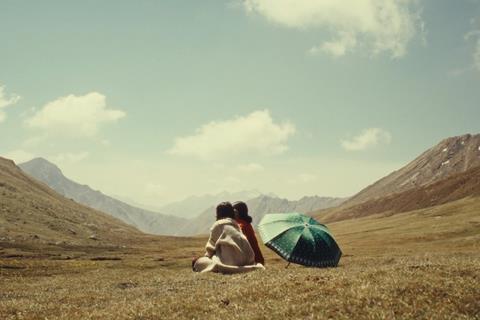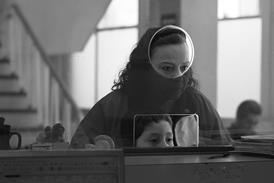This strong debut from French-Irish filmmaker Alexander Murphy bows in Tallinn

Dir: Alexander Murphy. France, Nepal. 2025. 90 mins
Jamuna, 21, and her younger sister Anmuna live and work in Kathmandu. It’s a long and arduous journey from the city to the remote Himalayan mountain village where the girls’ parents and their two other sisters still live. This engrossing and visually arresting documentary follows the girls on a trip back home to collect ’yarsagumba’, a rare and highly prized caterpillar-fungus which Jamuna hopes will fund her move to study in Japan. Goodbye Sisters benefits from a winning combination of appealing characters, spectacular cinematography and fascinating insights into a way of life.
This is documentary filmmaking with a light touch
It’s an eye-catching first feature for French-Irish filmmaker Alexander Murphy, whose previous short non-fiction works include Ndao Hanavao (2024) and Of Soul And Joy (2023), both of which were produced by the Rubis Mécénat endowment fund. Following its premiere in the documentary competition strand in Tallinn, Goodbye Sisters should find further festival interest, particularly in events focusing on non-fiction and women’s stories. Theatrical interest from documentary specialist distributors is not out of the question.
This is documentary filmmaking with a light touch: observational and intimate, the picture takes its time allowing us to get to know the central characters and to understand the unusually strong bond between them. Jamuna, with her owlish round glasses and air of quiet confidence, is her younger sister’s protector, and her inspiration. We shadow them as they shop for gifts for their family back home, with Jamuna taking the lead in negotiating a good deal on everything from cashmere scarves to candies. She also barters with the Chinese medicine vendors, researching the price that they will pay for the yarsagumba – mummified caterpillars which have been invaded by a cordyceps fungus – that she hopes to bring back from the mountain. Believed to be an aphrodisiac, the yarsagumba are worth more than gold.
But first, the girls must embark on the journey home. After two buses, the final part of the trip is taken on foot, through swathes of wet clouds on a winding mountain track. They arrive late at night, welcomed with half-remembered songs and a dance by their father, and tearful hugs from their mother. But even the celebration of a long-overdue reunion can’t interrupt the grinding routines of village life. And the next morning, the girls are expected to do their bit in the family’s field.
The film is not overt in its messaging but, in its unassuming way, it’s a revealing account of the prospects and limited options for girls born into low status households in Nepal’s mountain communities. Through the conversations between Jamuna, who believes in the possibility of a better future through education, and her sisters, two of whom were married young and still live in the village, we learn much about the status of women in Nepal. One of the sisters has been forbidden by her husband to join the yarsagumba harvest but, emboldened by the no-nonsense Jamuna, decides to come along anyway.
Through one shocking conversation between Jamuna, Anmuna and their visibly distressed parents, it becomes clear the girls endured horrendous abuse as children: what seemed to be the opportunity of an education at a boarding school in Kathmandu turned out to be a scam which saw the girls made to work and subjected to beatings, and which nearly cost the family their farm lands. Jamuna’s dogged optimism and self-belief seems all the more admirable given the hardship she and her sister have suffered.
While the two girls are the focus of the story, the yarsagumba harvesting community – housed in a makeshift village of bright plastic tents at some 5000m altitude – is equally fascinating. We glimpse a celebratory carnival-like atmosphere, with dice games and pony rides. But there’s also a note of caution: it’s a dangerous undertaking, with lives regularly lost to the whims of the mountain weather. The unpredictable meteorological conditions and the biting cold no doubt added to the challenges faced by Murphy and his team. But it pays off in the shimmering play of light on the mountain meadows, and the drama of the temperamental clouds.
Production company: Goodseed Productions
International sales: Alpha Violet info@alphaviolet.com
Producers: Cosme Bongrain, Anup Poudel
Screenplay: Alexander Murphy, Jean-Baptiste Plard
Cinematography: Vadim Alsayed
Editing: Manon Falise
Music: Maxence Dussère, GILDAA

























No comments yet